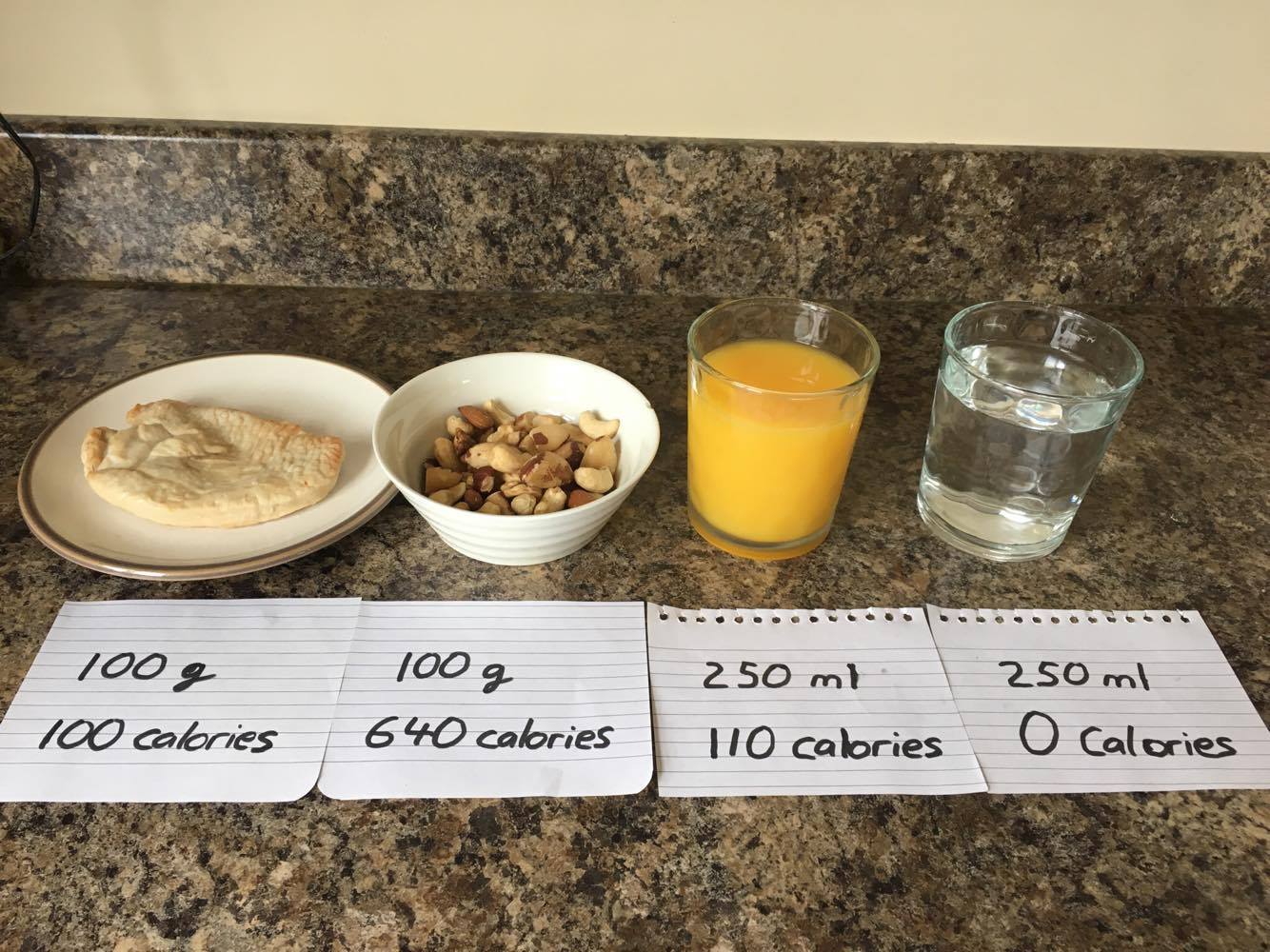So does more food mean more calories?
No not necessarily, different foods depending on their make up will differ calorie wise. For example, 100g of chicken contains on average 90-100 calories whereas 100g of mixed nuts contains on average 630-640 calories. Both foods are the same weight but contain over 500 calories of difference! This is just one example of 2 snacks that you might have during the day and how one will benefit those looking to lose weight and one will benefit those looking to gain weight. This is the case with lots of different snacks and even drinks as the picture below shows.
Another point to consider is how the food makes you feel, does the food fill you enough that you’re not looking for more after eating it? Foods that contain large amounts of fat, sugar, and/or starch have low Fullness Factors, and are much easier to overeat. Foods that contain large amounts of water, dietary fiber, and/or protein have the highest Fullness Factors. These high-FF foods, which include most vegetables, fruits such as oranges, apples and bananas, and lean meats such as steak, do a better job of satisfying your hunger.
By choosing foods that keep you fuller for longer, you’ll improve your chances of consuming fewer calories, minimise your hunger and increase the likelihood of shedding unwanted body fat.

